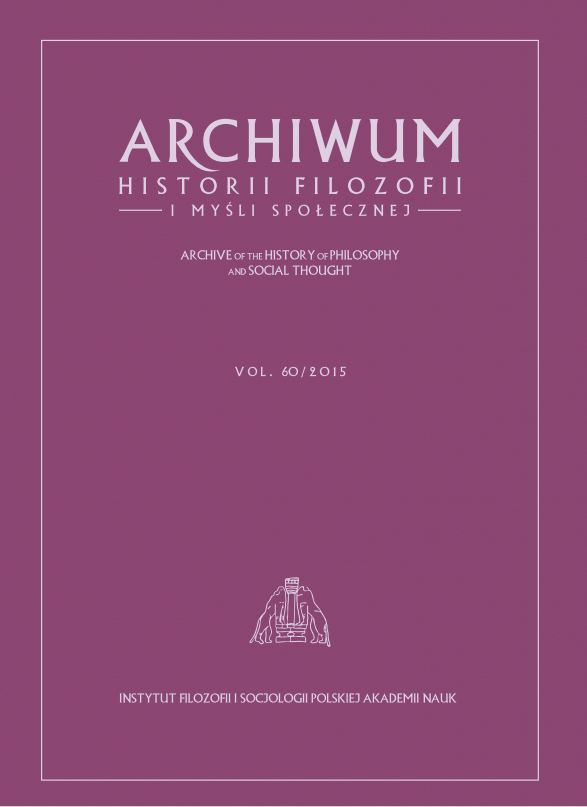Diderot, Balzac et la physiologie de l’amour
Diderot, Balzac and the Physiology of Love
Author(s): Marian SkrzypekSubject(s): Philosophy, History of Philosophy
Published by: Instytut Filozofii i Socjologii Polskiej Akademii Nauk
Keywords: Diderot; Balzac; alienation; love; human comedy; energy of nature; subconsciousness; marital infidelity; neuroses; romanticism; community of women
Summary/Abstract: Diderot follows Hobbe’s materialistic tradition, which sees love as the manifestation of the energy of nature. He wishes to tame this brute and wild nature, and praises the society of the Tahitians, where the wife is not as yet privately owned by her husband. Another source of the notion of the energy of nature in Diderot is platonian eros considered as the creative cosmical force. In Platon Diderot finds also the physiological explanation of love. In this respect, he continues deliberations about enthusiasm undertaken by Plato and Shaftesbury. For Diderot, enthusiasm is a romantic notion. The reflection on hysteria leads Diderot to formulate the notion of alienation. Balzac as a reader of Diderot classifies women’s neuroses as romantic neuroses, melancholic in nature, and classic neuroses, which are aggressive in nature. In the latter, he detects women’s subconscious emancipatory revolt.
Journal: Archiwum Historii Filozofii i Myśli Społecznej
- Issue Year: 60/2015
- Issue No: 60
- Page Range: 119-138
- Page Count: 20
- Language: French

